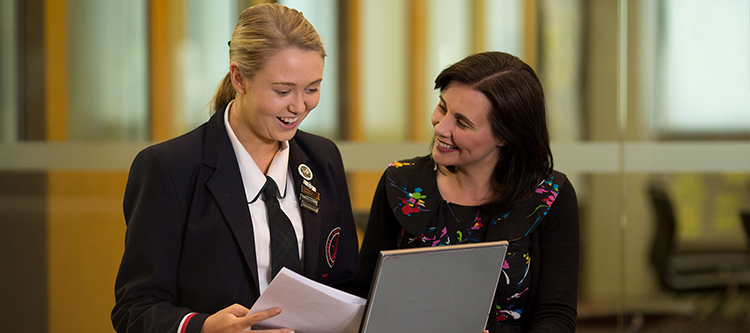Understanding the importance of emotional literacy
Thursday 28 April, 2016
It was Aristotle who once said that educating the mind without educating the heart really wasn’t educating anyone at all.
At Pymble, we’re helping our students and teachers to understand that every emotion truly matters.
Emotions drive learning, creativity, relationships and health. In the context of our College, emotional literacy – the act of understanding, expressing and regulating emotions – leads to better leadership skills, better academic performance and greater mental and physical wellbeing.
For the past three years, key Pymble staff have undertaken RULER training through the Yale University Center for Emotional Intelligence. The RULER program for schools teaches how to use the power of emotions to create more effective and compassionate school communities.
Emotional literacy is a foundational principle of our Wellbeing program, for practical reasons. If a student is feeling anxious or overwhelmed – if their emotional resources are being used to deal with, for example, study stress or bullying – it’s hard to be fully present in the classroom for learning. Emotional literacy also enables better decision-making, positive relationships and mental wellbeing.
A more modern day proponent of emotional literacy is Dr Marc Brackett, director of the Yale Center for Emotional Intelligence. In his recent three-day educational leadership series at Pymble, Dr Brackett explained how emotional intelligence (EQ) plays just as an important role in academic and lifelong success as Intelligence Quotient (IQ).
By deliberately teaching emotional intelligence, Dr Brackett said schools achieve important outcomes. Students enjoy being in school more. Their classrooms become places where they feel valued. Their academic achievements rise.
Part of the program’s adaptation at Pymble is to help students to improve their emotional vocabulary. Ask most people how they are, and they’ll usually reply “fine”. Through the Mood Meter, for instance, girls develop a more sophisticated vocabulary and an understanding of where their emotions lie – at what level of intensity or pleasantness, and what strategies they can use to change how they’re feeling.
We also use strategies like the Meta Moment to help students find a space between an emotional stimulus and a triggered response. In that space, they begin to develop an ability to name their emotion, understand why they feel that way, and put forward their best possible self at that time.
Other strategies being learned by staff and students are positive self-talk and positive self-appraisal – both excellent strategies to understand and self-regulate emotions.
Importantly, the use of RULER ties in with our commitment as a College to delivering truly personalised education. Developing a deeper understanding of emotions allows significant conversations – such as coaching conversations between teachers and students – to reach a place of greater meaning and depth as each student grows. Peer-to-peer conversations between students can reach greater maturity, with students owning positive ways to maintain and protect relationships. Teachers are also developing their emotional vocabulary, and this enables them to respond to each other in increasingly professional and respectful ways. This is evidenced, in particular, in our Upper School, where teaching staff are using the Mood Meter tool to check in with each other and tailor their professional conversations.
Wise and experienced teachers have long known how to ‘read’ a classroom and to leverage learning opportunities in relation to how students are feeling. Now, thanks to more than 20 years of research at Yale, our teachers are transforming classrooms into places that are optimally charged, in all areas, for learning.



